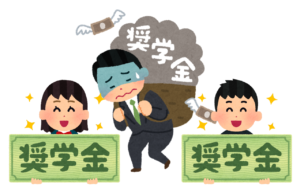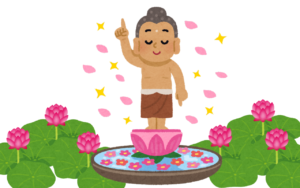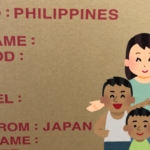
Some time ago, in Diamonds on a Line, Professor Yohji Yamaguchi of Daito Bunka University wrote that the country name "Japan" was named by the Chinese during the Tang Dynasty.
In "What is Japan?" by historian Yoshihiko Amino, he writes that an envoy drifting to Tang China during the Taiho period (702) was asked where he came from, and he replied, "I am from Japan.
Awata Masato, a representative of the Japanese envoy to the Tang Dynasty who was invited by Empress Wu Zetian, officially referred to Japan as Japan, and Empress Wu Zetian recognized this. After that, China is said to have changed the name of the country from "Wa" to "Nihon-koku" (Japan).
The country name "Japan" was recognized by the Tang Dynasty (Wu Zhou during this period), a great power at that time, and the country name "Japan" has continued to be used ever since.
On the other hand, it is not known who named it "Japan, Nippon" and why.
To begin with, it is said that even though Wa(Japan) was written in Chinese characters, it was read as "Yamato" at that time (7th-8th century). Since "Yamato" was also written as "Nippon(Japan)," it is said that only the Chinese characters were changed to "Japan.
The word "wa" refers to the southeastern region from the perspective of China, and was not intended to denote a country.
It is certain that the Taika Reform of the mid-7th century, as the country was being shaped around the emperor, marked the outward presentation of itself as an independent nation called "Japan.
During this period, there were three states on the Korean peninsula: Koguryo, Silla, and Baekje.
The oldest Korean history book, "Samguksagi," records that Silla at that time called our country "Japan.
This means that the country name "Japan" was used by Silla before Empress Wu Zetian approved the name "Japan.
In this case, Professor Yamaguchi's statement that "the Chinese named the country" is clearly incorrect.
By the way, it is said that it was during the Heian period (794-1185) that "Japan," formerly "Yamato," came to be called "Nippon.
In Chinese, "Japan" sounds like "li-pen" or "ji-pen. This may have been the origin of the word "Nippon.
Later, Marco Polo referred to our country as "Zipangu," the land of gold, in his book "The Book of Eastern Paintings," which is also derived from the Chinese pronunciation. It became Japan.
In this light, the country name "Japan" may have been thought up by one of our ancestors, but "Nippon" can be seen as of Chinese origin.









